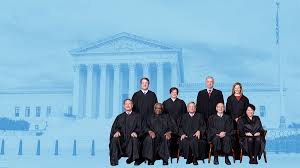As an academic and a legal commentator, I have sometimes disagreed with the United States Supreme Court, but I often stress the good-faith differences in how certain rights or protections are interpreted. One case, however, has long stood out for me as wildly off-base and wrongly decided: Kelo v. New London. The case allowed the government to seize property from one private party and then give it to another private party. There is now a petition before the Supreme Court that would allow it to reconsider this pernicious precedent. The Court should grant review in Bowers v. Oneida County Industrial Development Agency precisely for that purpose.
Many of us expressed outrage at the actions of the city leaders of New London, Connecticut, when they used eminent domain to seize the property of citizens against their will to give it to the Pfizer corporation.
This anger grew with the inexplicable decision of the Supreme Court in Kelo v. City of New London to uphold the abusive action. After all the pain that the city caused its own residents and the $80 million it spent to buy and bulldoze the property, it came to nothing. Pfizer later announced that it was closing the facility — leaving the city worse off than when it began.
I will not repeat my fundamental disagreement with the interpretation of the eminent domain power. For my prior testimony on the Kelo decision, click here.
The Bowers case involves New York developer Bryan Bowers who challenged the decision of a county redevelopment agency to condemn his property and then give it to another developer to use as a private parking lot.
Most states prohibit this abusive practice but not New York.
Justice Chase (not long after the Bill of Rights was written) rejected this type of abuse:
“An act of the Legislature (for I cannot call it a law) contrary to the great first principles of the social compact, cannot be considered a rightful exercise of legislative authority … . A few instances will suffice to explain what I mean… . [A] law that takes property from A. and gives it to B: It is against all reason and justice, for a people to entrust a Legislature with such powers; and, therefore, it cannot be presumed that they have done it.” Calder v. Bull, 3 Dall. 386, 388 (1798) (emphasis deleted).
Much has changed on the Court since 2005. It is possible that the new majority could finally correct the mistake made in Kelo. While most states have barred this abusive practice, states like New York still leave property owners at the mercy of local officials who use eminent domain to transfer property between citizens.
For Susette Kelo, she had little chance to fight a major pharmaceutical company for her home. The Supreme Court just looked on passively after local officials seized her home because she was not nearly as valuable to them as Pfizer. This abusive use of eminent domain is not just an invitation for corrupt dealings but a denial of the core protections of individual citizens under our Constitution.
It is time for Kelo to be set aside. The Court has that opportunity with Bowers.
Reprinted with permission from JonathanTurley.org.

